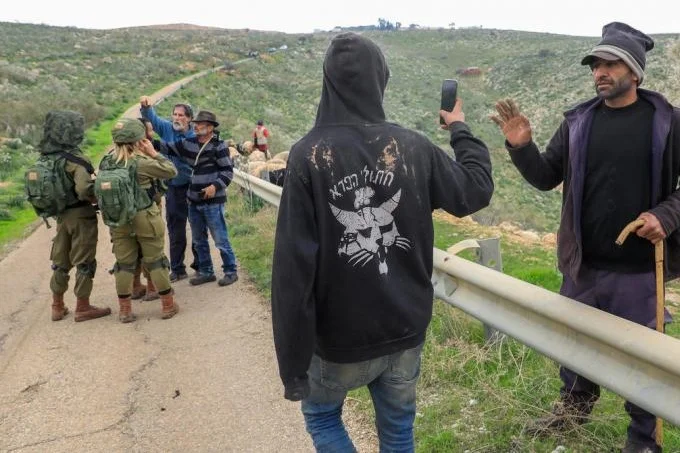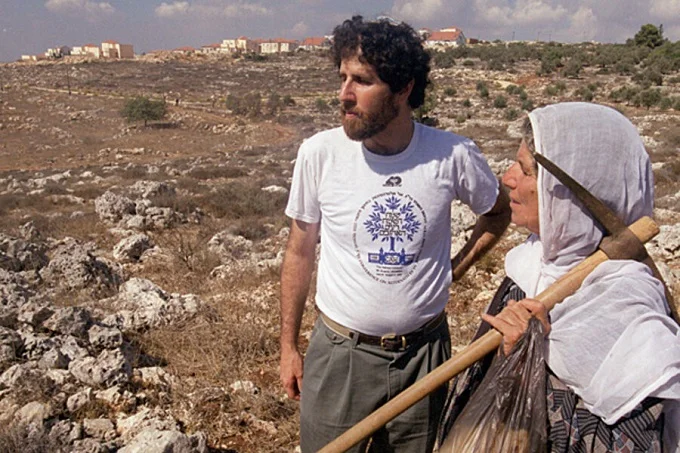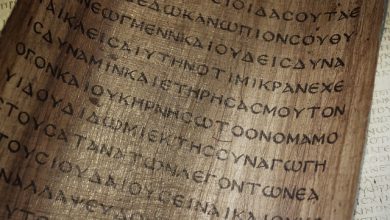Who is Arik Ascherman, the rabbi who defends Palestinian farmers?

The Rabbi is unafraid to intervene physically between Palestinian farmers and Israeli settlers who are attacking them.
His Facebook page shows him battling Israeli settlers, interfering in invaded Palestinian fields, barricading himself in houses from which Arab families are being evicted, and documenting abuses by Israeli forces in the occupied territories or militant sit-ins in Jerusalem with his smartphone in hand.
Arik Ascherman is a traitor to Israel’s nationalist Jews. On November 12, he protected Palestinian farmers who were assaulted by Israelis while harvesting their olives. He had wounds on his face as he emerged.

‘This mobilizes a tiny group of Jews who want the settlements to end: a few hundred militants who will defend Palestinians with their bodies. Unfortunately, they have much less influence on the political landscape, public opinion, and even foreign diplomacy now than they had in the 1990s and 2000s’ explains Michel Warshavsky, the Alternative Information Center’s director and an Israeli anti-Zionist thinker.
Since the 1990s, Ascherman has fought for Palestinian rights. His most notable success came in 2006, when the High Court of Justice, which he represented, declared that security forces were responsible for protecting Palestinian farmers’ access to their property in the West Bank.
He never stopped alerting and reminding Israeli security personnel of the law, and he never hesitated to interfere between settlers and Palestinian farmers, a dangerous stance. In April 2021, a video went viral in the local media, showing an activist being beaten with a club by a hooded settler who came to urge the settlers who control a herd to guide it off of the Palestinian land it was trampling.
But it was a 2015 picture that made the largest impression: a hooded settler brutalizes him during another scene of interposition, whirling a blade that he signals to place in the back of the prostrate protester. “We should never, not even once, oppress like we do. We are now using our power to dispossess others. The Midrash [exegesis, Editor’s note] teaches that the hand that strikes a non-Jew will end up striking the Jew as well, ”he wrote following this quasi-attempted murder in Haaretz, citing the Exodus.
Arik Ascherman is a rabbi as well. “Religious people make up a relatively modest percentage of the mobilized Jewish minority. “The great majority of the rabbinical body, which is on the right,” Warshavsky says, “considers them at best clowns, at worst miscreants.”
Arik Asherman, now 62, is an American by birth who grew up in Pennsylvania and went to Harvard, but he was more drawn to God’s call than to American prosperity. He went to Israel with the NGO Interns for Peace, which seeks to bring Jews and Arabs together in Israel, from 1981 to 1983, since he was too green for rabbinical school. In 1994, he returned to Israel after studying to become a rabbi in the United States.
Since then, he has never ceased advocating Palestinian rights, and he has been joined by Rabbis for Human Rights (RHR), an organization created in 1988 by a group of rabbis dedicated to human rights.
Ascherman, a man of God in the service of justice, never fails to refer to the Scriptures, seeing in the settlers and their henchmen and ‘those who, by elevating the sacredness of the Land of Israel above all other values, have turned our shared belief in its sacredness into idolatry’.
For, unlike some messianist ultra-Orthodox like the Neturei Karta, who oppose the colonization of Palestine and the Judaization of the State of Israel, Ascherman is not anti-Zionist, Warshavsky explains: “He assumes a Zionist and patriotic position, seeing the colonization as a fault and a danger to the future of Israel.”
The committed Rabbi has had to endure police harassment and judicial assaults in the face of violence: he has been arrested several times, convicted of civil disobedience in 2005 after blocking a bulldozer that was about to destroy Palestinian homes, and accused of civil disobedience again in 2008 for instigation: Palestinians are being incited to fight the police.
The courts, on the other hand, have been more supportive than condemnatory of RHR, as seen by the 2006 High Court judgment. Following an “organizational issue,” Ascherman departed the organization he helped to reform in 2016, after serving as executive director from 1995 to 2010, when he was promoted to president.
He transformed a modest NGO with two part-time workers and a budget of less than $30,000 into a structure with 40 people and a budget of $1.5 million in 21 years.
He has expanded the association’s efforts to include the protection of Bedouin settlements in Israel, which are often demolished because they are unrecognized, as well as the defense of asylum applicants, particularly Africans. Rabbi Ascherman, who launched Torat Tzedek – Torah of Justice – in 2017, is now fighting the same fights, smartphone in hand and unfazed by the blows.



